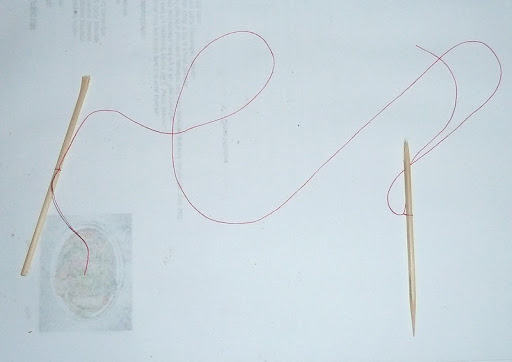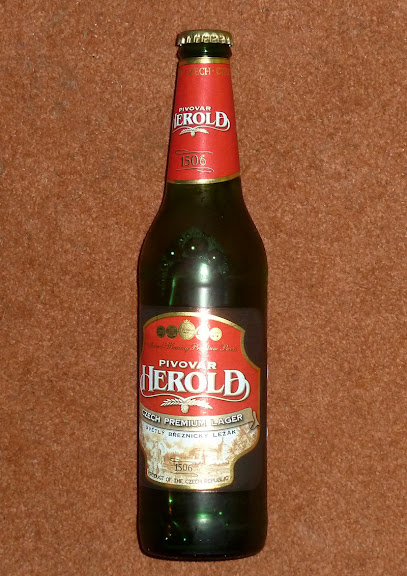|
|
Post by Weyland on Nov 3, 2010 11:30:55 GMT
My hands would be shaking if I was trying to ponce around arranging raw meat on plates (why the hell don't they cook it properly? I swear they'll all get worms) while some bloke keeps telling me not to be nervous. Twats!  He was robbed, though Claire was almost as worthy a winner. ~ ~ ~ The Czech dumplings were not a complete success. Didn't rise enough, so ended up a bit heavy. I halved all the quantities, but still unthinkingly dumped in a whole egg. Could that be why the dough didn't rise properly? Next time they'll be better. The goulasch was delicious, if I say so myself, and I'm sure the choriZo helped. Nothing was raw or even near raw.  I wouldn't dream of roasting potatoes in olive oil. I'm pretty sure they'd end up soggy. Groundnut oil is good. By the way, I followed the recipe and browned the steak with lard. Never used that for years.  The garotte. Worked like a charm, much to my surprise.  Before the slow cooker got going.  The finished dish. Note the elegant 5-Star Dining MasterChef Experience presentation. I had some salad with it.  Thought this would be a tasty refinement, given that it was the Czechs that invented lager, and Czech beer can indeed be excellent. (Riot -- Pivo.) But not this Asda stuff. Tasted a lot like a Danish beer -- too sweet for me. |
|
|
|
Post by Patrick on Nov 3, 2010 12:54:47 GMT
Worthy of it's own thread again, possibly, but "Beer in Stews" is an intriguing one. For years I used Hobgoblin which was a good dark one, sometimes Black Sheep which is a little lighter. I've not been a fan of Guinness as it sometimes gives the meat a metallic-ey aftertaste.
|
|
|
|
Post by Weyland on Nov 3, 2010 13:15:16 GMT
Worthy of it's own thread again, possibly, but "Beer in Stews" is an intriguing one. For years I used Hobgoblin which was a good dark one, sometimes Black Sheep which is a little lighter. I've not been a fan of Guinness as it sometimes gives the meat a metallic-ey aftertaste. The goulasch recipe asked for wine, which I don't drink, so I put beer in instead -- just Asda's el cheapo Belgian 5%. Seemed to work fine. I used to put Guinness into some dish or other, but I've forgotten what. Must've been eminently forgettable. |
|
|
|
Post by jean on Nov 3, 2010 13:49:26 GMT
The Czech dumplings were not a complete success. Didn't rise enough, so ended up a bit heavy. I halved all the quantities, but still unthinkingly dumped in a whole egg. Could that be why the dough didn't rise properly? No, eggs make things rise. Did you remember to take the shell off? |
|
|
|
Post by everso on Nov 3, 2010 14:07:48 GMT
I know if you make suet dumplings too dry they won't be light and fluffy - you have to make them ever so slightly sticky. I imagine the extra liquid wouldn't do any harm, but of course your dumplings weren't suet ones.
|
|
|
|
Post by Weyland on Nov 3, 2010 14:13:14 GMT
The Czech dumplings were not a complete success. Didn't rise enough, so ended up a bit heavy. I halved all the quantities, but still unthinkingly dumped in a whole egg. Could that be why the dough didn't rise properly? No, eggs make things rise. Oh. I must've been thinking of the old nursery rhyme . . . One Egg to rule them all, One Egg to find them,
One Egg to bring them all and in the darkness bind them.What else could it be? How old-fashioned. I just got one of my GM no-shell chickens to lay it straight into the mix. |
|
|
|
Post by Weyland on Nov 3, 2010 14:27:02 GMT
I know if you make suet dumplings too dry they won't be light and fluffy - you have to make them ever so slightly sticky. I imagine the extra liquid wouldn't do any harm, but of course your dumplings weren't suet ones. Yes. I'm good at suet dumplings. And they're sticky. The recipe isn't as precise as I'd like. I have plenty of goulasch left, so I'll take your advice and make a fresh batch of dumplings today, with more liquid. (Adding a little baking powder to the self-raising wouldn't be a good idea, would it?) |
|
|
|
Post by everso on Nov 3, 2010 14:43:00 GMT
I know if you make suet dumplings too dry they won't be light and fluffy - you have to make them ever so slightly sticky. I imagine the extra liquid wouldn't do any harm, but of course your dumplings weren't suet ones. Yes. I'm good at suet dumplings. And they're sticky. The recipe isn't as precise as I'd like. I have plenty of goulasch left, so I'll take your advice and make a fresh batch of dumplings today, with more liquid. (Adding a little baking powder to the self-raising wouldn't be a good idea, would it?) I add baking powder to the self-raising flour, yes. It definitely helps. I add about a level teaspoon per 4 oz. flour. |
|
|
|
Post by Weyland on Nov 3, 2010 14:54:51 GMT
I add baking powder to the self-raising flour, yes. It definitely helps. I add about a level teaspoon per 4 oz. flour. Wow -- that's a lot. I shall do it. Love this thread. |
|
|
|
Post by everso on Nov 3, 2010 18:31:50 GMT
I add baking powder to the self-raising flour, yes. It definitely helps. I add about a level teaspoon per 4 oz. flour. . I shall do it. Love this thread. I think it's about that. I tend to chuck stuff in. My dumplings are always very light though.  |
|
|
|
Post by Weyland on Nov 3, 2010 20:10:57 GMT
I think it's about that. I tend to chuck stuff in. I chucked that much in, plus a LOT more milk, plus a whole egg, plus more shredded stale bread than before. Brilliant! Almost as good as the real thing I remember from another century. Thank you Ev, and thank you Jean. I can imagine. In fact this thread is dedicated to your dumplings. |
|
|
|
Post by everso on Nov 3, 2010 21:28:27 GMT
;D ;D
|
|
|
|
Post by jean on Nov 6, 2010 23:06:33 GMT
Petr the Czech dropped in on the Cakeboard yesterday, so I asked his advice. This is what he said:
Sorry, I buy them ready-made, and mostly just potato-dumplings that are quite often eaten in South Bohemia, but much less elsewhere.
(To make real Houskové knedlíky, you need housky - a white bakery product that may not be available in the UK, somewhat similar to baguettes. You cut these to cubes, fry them on butter, let them cool down, and add to the dough. For the dough, you use yeasts risen in lukewarm milk, rough flour mixed with salt, an egg and water. After rising, you make the knedlíky themselves and boil them in salty water for about 15 minutes on each side.)
Hope this helps.
|
|
|
|
Post by Weyland on Nov 7, 2010 9:47:52 GMT
Petr the Czech dropped in on the Cakeboard yesterday, so I asked his advice. This is what he said: Sorry, I buy them ready-made, and mostly just potato-dumplings that are quite often eaten in South Bohemia, but much less elsewhere.
(To make real Houskové knedlíky, you need housky - a white bakery product that may not be available in the UK, somewhat similar to baguettes. You cut these to cubes, fry them on butter, let them cool down, and add to the dough. For the dough, you use yeasts risen in lukewarm milk, rough flour mixed with salt, an egg and water. After rising, you make the knedlíky themselves and boil them in salty water for about 15 minutes on each side.) Hope this helps. Thank you, Jean, and thank Petr for me. That agrees largely with the book, except that they go for the chemical method instead of yeast, and the frying of the bread bit. I was planning to go the yeast route next time, now that I know more. I wonder what he means by "rough flour". Potato dumplings are pencilled in as Project 2. They're on the next page in the book. This is fun. |
|
|
|
Post by jean on Nov 7, 2010 17:48:36 GMT
I wonder what he means by "rough flour". I wondered if that meant semolina - I'll ask him, but of course he may not know the English word. He added this helpful linkThese are the housky. (Are those caraway seeds poking out?)  (I remember when farro became very fashionable in Italy, and I looked it up and it said spelt, and I was none the wiser. I know now though, because spelt has become fashionable here too.) |
|
|
|
Post by jean on Nov 8, 2010 8:56:43 GMT
Petr writes:
'Wheat-flour comes here in three brands: fine ground, half coarsely ground, and coarsely ground - but it's not semolina, it's just more rough than fine ground flour. So perhaps something not available in the UK, either.'
|
|
|
|
Post by Weyland on Nov 8, 2010 10:46:51 GMT
Petr writes: 'Wheat-flour comes here in three brands: fine ground, half coarsely ground, and coarsely ground - but it's not semolina, it's just more rough than fine ground flour. So perhaps something not available in the UK, either.'Very interesting. I assume this is nothing to do with wholemeal, bran, etc. I know a miller in Holland. I'll ask him about this next time I'm at his windmill. I know he can adjust and/or change the millstones depending on raw material and/or demand. |
|